

 First Skyhorse Publishing edition 2021 by Paula Mee Original edition published by: Gill Books Hume Avenue Park West Dublin 12 Gill Books is an imprint of M.H. Gill and Co. Paula Mee 2019 Designed by www.grahamthew.com Photography Joanne Murphy (www.joanne-murphy.com), apart from pp. which are Getty Images Styled by Orla Neligan of Cornershop Productions (www.cornershopproductions.com), assisted by Deborah Ryan Cooking by Paula Mee and Clare Wilkinson Copy-edited by Kristin Jensen Proofread by Emma Dunne Indexed by Eileen ONeill All rights reserved. No part of this book may be reproduced in any manner without the express written consent of the publisher, except in the case of brief excerpts in critical reviews or articles. All inquiries should be addressed to Skyhorse Publishing, 307 West 36th Street, 11th Floor, New York, NY 10018.
First Skyhorse Publishing edition 2021 by Paula Mee Original edition published by: Gill Books Hume Avenue Park West Dublin 12 Gill Books is an imprint of M.H. Gill and Co. Paula Mee 2019 Designed by www.grahamthew.com Photography Joanne Murphy (www.joanne-murphy.com), apart from pp. which are Getty Images Styled by Orla Neligan of Cornershop Productions (www.cornershopproductions.com), assisted by Deborah Ryan Cooking by Paula Mee and Clare Wilkinson Copy-edited by Kristin Jensen Proofread by Emma Dunne Indexed by Eileen ONeill All rights reserved. No part of this book may be reproduced in any manner without the express written consent of the publisher, except in the case of brief excerpts in critical reviews or articles. All inquiries should be addressed to Skyhorse Publishing, 307 West 36th Street, 11th Floor, New York, NY 10018.
Skyhorse Publishing books may be purchased in bulk at special discounts for sales promotion, corporate gifts, fund-raising, or educational purposes. Special editions can also be created to specifications. For details, contact the Special Sales Department, Skyhorse Publishing, 307 West 36th Street, 11th Floor, New York, NY 10018 or . Skyhorse and Skyhorse Publishing are registered trademarks of Skyhorse Publishing, Inc., a Delaware corporation. Visit our website at www.skyhorsepublishing.com. 10 9 8 7 6 5 4 3 2 1 Library of Congress Cataloging-in-Publication Data is available on file.
Cover design by Daniel Brount Cover photo by Joanne Murphy Print ISBN: 978-1-5107-6230-5 Ebook ISBN: 978-1-5107-6231-2 Printed in China Note to reader This book is intended as a reference guide only, not as a medical manual. It is not a substitute for any medical or psychological treatment that may have been prescribed by your doctor. Bear in mind that nutritional needs vary from person to person. The information here is best used in conjunction with your dietitian or doctor. About the author PAULA MEE , BSc, Dip Dietetics, MSc in Health Sciences, MINDI, is a state-registered dietitian who lectures on a unique masters degree programme, the MSc in Applied Culinary Nutrition, in Technological University Dublin. Paula provides a range of health and wellness services to the food industry and corporate world.
She contributes regularly to national media and is the co-author of Gut Feeling (2017) and Your Middle Years: Love Them, Live Them, Own Them (2016). Acknowledgments Thank you to my darling son Cian. Keep shining! Thank you to JD for the wonderful MM breathers while writing. Thanks also to Fiona Burke, whose executive coaching was so valuable. And to my wonderful parents, siblings and friends you are as always supportive and encouraging. I am very grateful to you all.
Thank you especially to Sarah Liddy for your gentle direction and reassurance. I am indebted to you and the Gill Books team, including Catherine Gough, Teresa Daly, Avril Cannon and colleagues. Thanks also to Kristin Jensen, Orla Neligan and Joanne Murphy. It was my great pleasure to work with you. Every book is a collaborative undertaking. Without all the personal and professional support, Mediterranean Mood Food would never have made it! Foreword Mediterranean Mood Food is a decidedly timely publication.
The role of diet and mood has until recent times been largely ignored by psychiatrists and other mental health professionals. However, in recent years the role of the brain-gut-microbiota axis has become an important topic for researchers and has provided the scientific basis for nutritional interventions, especially in mood-related disorders such as depression. There is over one kilogram of bacteria in the adult human intestine, which in essence is equivalent to the weight of the human brain. Within this microbiota are a very diverse range of microbes, and published studies indicate that patients suffering from depression have less diversity of these microbes than normal healthy people. While the microbes undoubtedly produce molecules that our brain and other organs require, we provide the nutrients to enable them to flourish. In order to maintain a diverse microbiota, we need to take in a diverse range of foods.
The Mediterranean diet is probably the optimal diet for maintaining gut health and subsequently mental health. It is also the diet most closely linked with longevity; there are more centenarians in Spain and Italy than anywhere else in Europe or North America. While genes play an important role in such longevity, so too does diet. The diverse range of fruit and vegetables together with fish in the Mediterranean diet promotes microbial richness in the microbiota. Increasing evidence indicates that not only are those who consume a Mediterranean diet less likely to suffer from depression than those on a Northern European diet, but where depression does occur, antidepressant treatment is also likely to be more effective. Nutrition is seen as an adjunct to treatment and not an alternative to medication or psychological therapies.
How is a Mediterranean diet so effective in protecting mood? The answer to this question is at the heart of the current text. Depression is a disorder characterised by inflammation, and diet can be used to decrease this inflammatory process. The Mediterranean diet is rich in prebiotics, which promote the growth of good bacteria; polyphenols, which are antioxidant; and polyunsaturated fatty acids, which are a vital structural component in the brain as well as being anti-inflammatory. This book is a highly practical introduction to the Mediterranean diet for maintaining good mental health. It is very clearly written and will undoubtedly be of benefit to a wide readership. Paula Mee is to be commended for her capacity to make relatively complex topics simple and for communicating her message in a clear and precise manner.
For anyone interested in the topic of nutrition and mood, especially anyone prone to depression, this book is a must read. TED DINAN Professor of Psychiatry University College Cork Contents Introduction: improve your mood with food What if you could help your mental health, boost your mood and lower your risk of developing cognitive disorders in later life just by tweaking the way you eat? For a life well lived, we need the right ingredients: fresh food, an active body and presence of mind. Of course, food isnt any more important than other health pillars. They all need to be intentionally integrated. Im a bit averse to the word diet, as it might suggest a short-term approach. This book has nothing to do with quick fixes or six-week solutions to our dietary troubles.
Rather, it pinpoints the beneficial traits of more traditional ways of eating to present a plan for the long term: the Mediterranean Mood Food Plan (MMFP). I want this book to be a guide to a sustainable long-term approach to health an antidote to the growing number of fad diets out there and a straightforward, upfront approach to the cornerstones of good nutrition. This book is designed as a map for your journey towards improved mood and physical wellbeing, one meal at a time. The MMFP is flexible and easy to follow and theres no need to count calories. Rather than a pyramid or plate, an MMFP is a flexitarian approach to enjoying healthy fats, fibre-rich carbohydrates and more plant proteins. That doesnt mean you cant enjoy a good steak or a delicious roast occasionally.
However, the MMFP shapes your week to facilitate more frequent enjoyment of fibre-rich legumes or a fillet of smoked mackerel or salmon steak high in omega-3s. A flexible meal pattern also allows for your own creativity to shine through. Fundamentally, you simply follow the 10 pillars (see ) and build up a collection of recipes as you go in order to keep your plan as fresh and interesting as possible. There will be readers who are great chefs and cooks, so dont be shy about sharing your meal ideas on social media, but stick to the 10 pillars as carefully as you can. As a dietitian, I have seen the benefits of this way of eating first-hand. I have witnessed the positive results and I understand the science behind them.
Next page
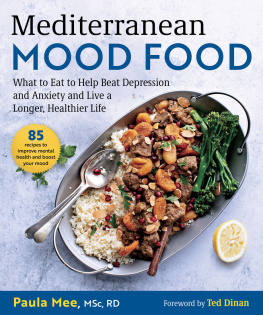
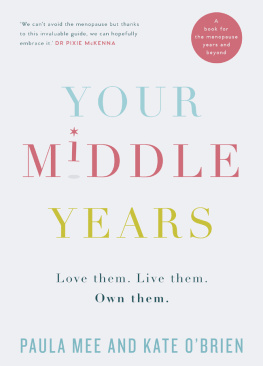
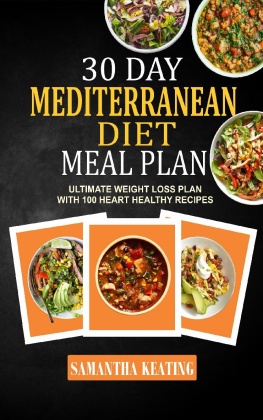
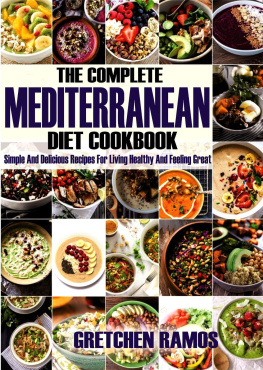
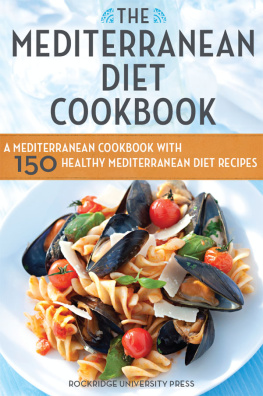
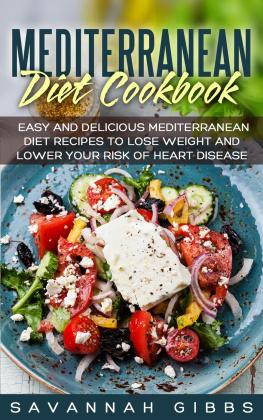

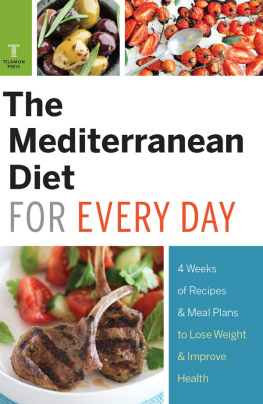
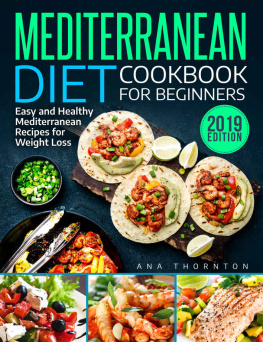
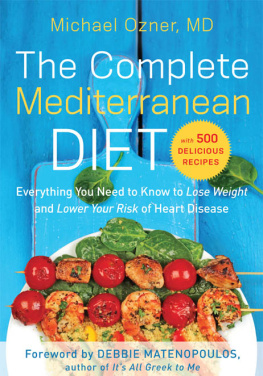


 First Skyhorse Publishing edition 2021 by Paula Mee Original edition published by: Gill Books Hume Avenue Park West Dublin 12 Gill Books is an imprint of M.H. Gill and Co. Paula Mee 2019 Designed by www.grahamthew.com Photography Joanne Murphy (www.joanne-murphy.com), apart from pp. which are Getty Images Styled by Orla Neligan of Cornershop Productions (www.cornershopproductions.com), assisted by Deborah Ryan Cooking by Paula Mee and Clare Wilkinson Copy-edited by Kristin Jensen Proofread by Emma Dunne Indexed by Eileen ONeill All rights reserved. No part of this book may be reproduced in any manner without the express written consent of the publisher, except in the case of brief excerpts in critical reviews or articles. All inquiries should be addressed to Skyhorse Publishing, 307 West 36th Street, 11th Floor, New York, NY 10018.
First Skyhorse Publishing edition 2021 by Paula Mee Original edition published by: Gill Books Hume Avenue Park West Dublin 12 Gill Books is an imprint of M.H. Gill and Co. Paula Mee 2019 Designed by www.grahamthew.com Photography Joanne Murphy (www.joanne-murphy.com), apart from pp. which are Getty Images Styled by Orla Neligan of Cornershop Productions (www.cornershopproductions.com), assisted by Deborah Ryan Cooking by Paula Mee and Clare Wilkinson Copy-edited by Kristin Jensen Proofread by Emma Dunne Indexed by Eileen ONeill All rights reserved. No part of this book may be reproduced in any manner without the express written consent of the publisher, except in the case of brief excerpts in critical reviews or articles. All inquiries should be addressed to Skyhorse Publishing, 307 West 36th Street, 11th Floor, New York, NY 10018.